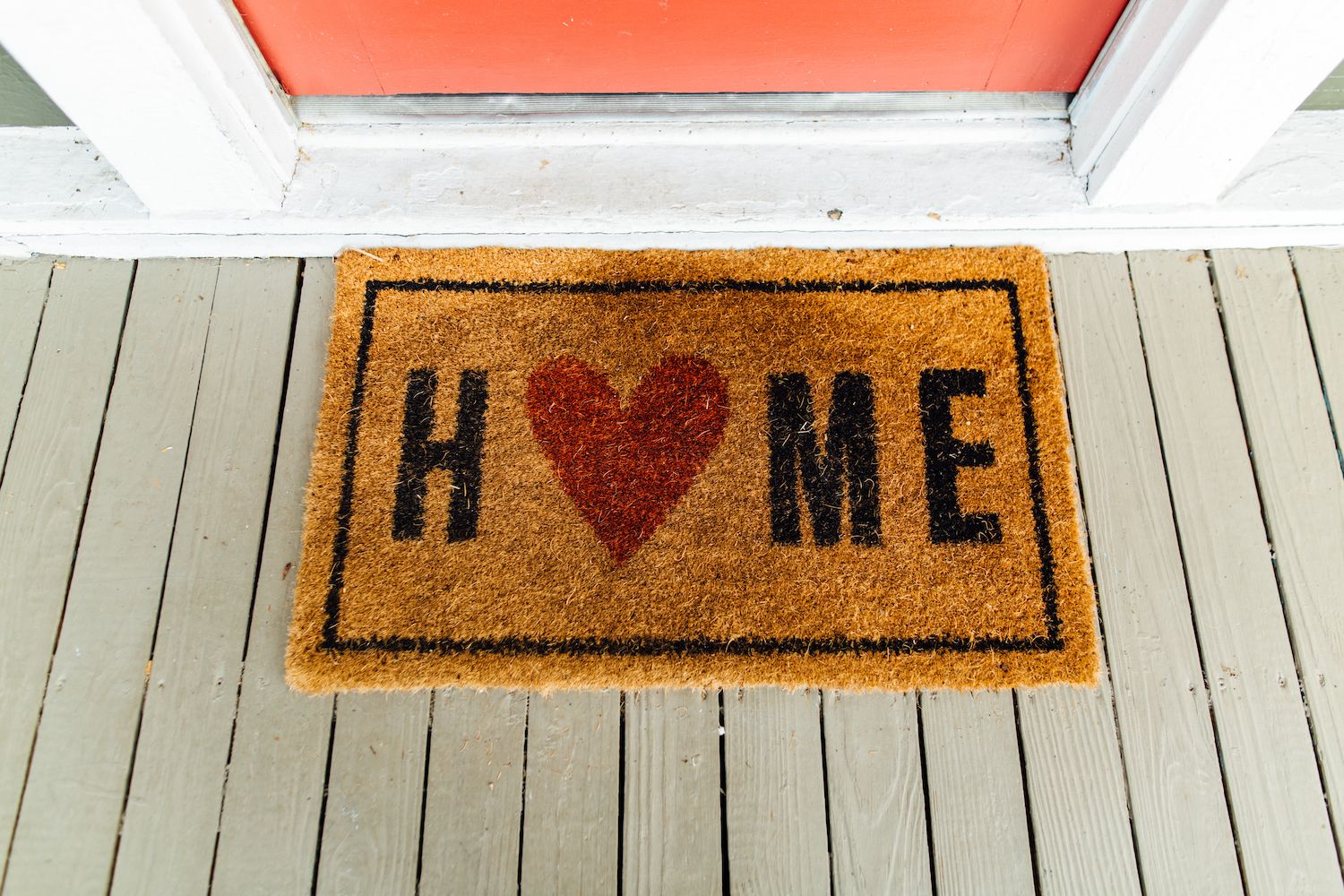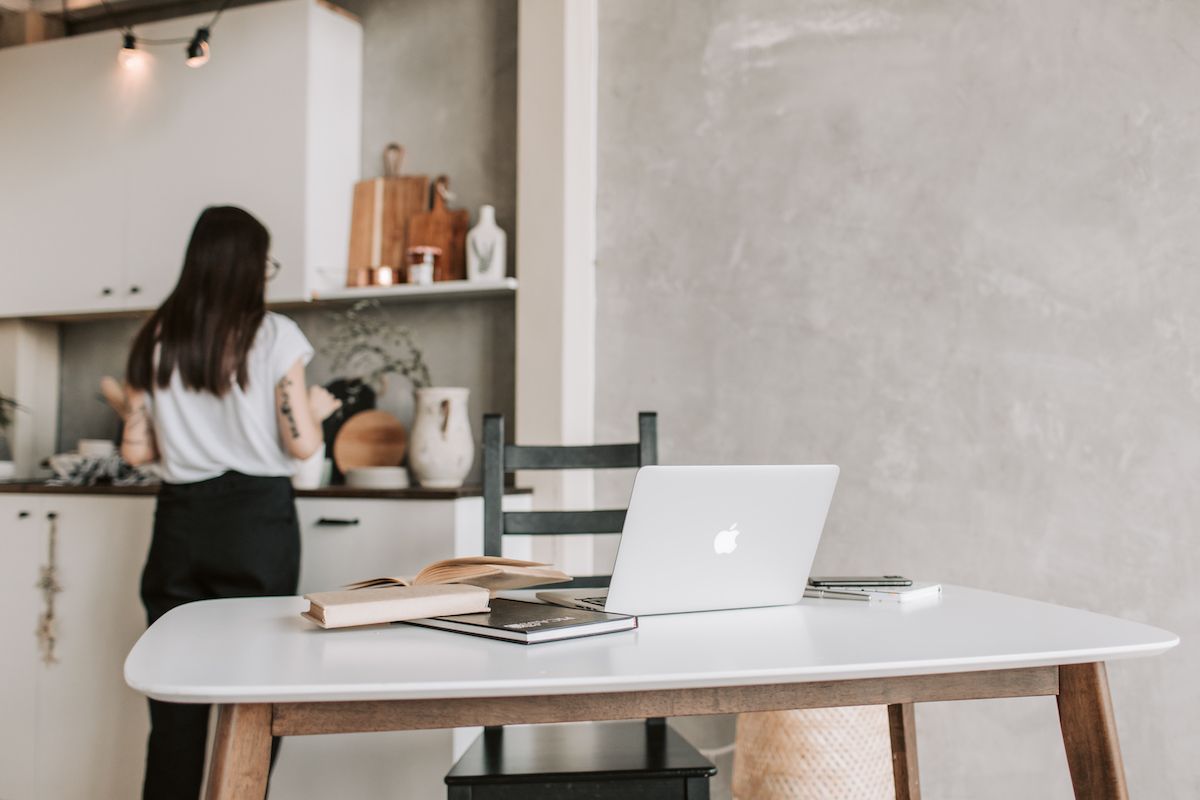Architectural and design firm Resi reveals the six qualities of a happy home and launches a new podcast series exploring how we should live now
If there’s one thing a lot of us have taken away from 2020 so far, it’s a greater appreciation for the meaning of home. Whether your home has become a safe space or felt like a prison at times, there’s no doubt we’ve all given thought about the four walls we surround ourselves with.
From decluttering to decorating, many have been using this extended time at home to make it feel like a nicer place to be, trying to harness that space we crave. But what exactly does it take to make a happy home?
Looking to unpick this question, architectural and design firm Resi surveyed 4,000 UK residents and published the results in a report called The Science of a Happy Home. With a crucial understanding that homes are not just defined by their physical characteristics, Resi notes that homes are a building block for how we experience the world and that we must also take into consideration who we live with.
“It’s never been more important to care about how happy our homes make us feel. Despite there being such a deluge of information on homes, architecture and design, there’s still not enough research about what truly matters to our happiness levels, which is what led to Resi’s The Science of Happy Homes report.
“Resi wants to change the conversation on this topic, and we can’t wait to share the advice and expertise of some brilliantly knowledgeable designers, architects and experts in this new podcast.” Said Alex Depledge, CEO of Resi.

The new podcast Alex is referring to is Happy Homes. Presented by journalist Nichi Hodgson, the podcast features interviews with guests from the world of architecture and design to discuss all things home, mental health and even how to decide when it’s time to move.
When asked what makes a happy home, Nichi explains that the research by Resi found six key qualities.
“It needs to be: relaxed, secure, personalised (i.e. your home needs to mirror your tastes and personality), connected (i.e. residents in it feel connected to one another and also to the outside world), adaptable, and nourishing.
“Crucially, you have to start the process of designing your home by thinking about how it will meet your needs and fit your personality - no two homes are alike in satisfying an individual's needs and that's as it should be!”
Let’s take a closer look at these six qualities of a happy home.
The six qualities of a happy home
1. Secure (provides safety, shelter and stability)
Perhaps unsurprisingly, a key component for happiness at home is for it to meet our basic need of being a safe shelter. Not only is security and stability important physically, but emotionally too. According to Resi’s findings, 48% of us say there’s always something to worry about when it comes to our home.
Renters may also feel less secure. 52% of those privately renting are expected to move within three years and 55% of the public believe the government should require landlords to offer rental contracts covering two years of tenancy as standard.
2. Nourishing (provides healthy conditions)
Having homes that optimise light, sound and ventilation is important, as well as our ability to control these elements for our own personal preferences.
Interestingly, what we can see from our windows has a lot of impact. Our satisfaction levels with the views outside are a more significant predictor of our happiness than our satisfaction with sunlight levels. So getting daylight can help us feel more content, but it’s what we see that truly impacts our happiness levels.

3. Adaptable (can flex to meet changing needs)
Having a home that meets our needs now and in the future is key, with 92% of those most happy at home agreeing that their house meets their needs. This idea of adaptability looks at the uses and functions of the spaces within our homes and how easily they can be adapted.
Open plan spaces for example are popular and important for home satisfaction, but the key is whether or not they can be adaptable in the long-term. Resi says this is especially important in new builds where some open plan spaces are smaller than the sum of the same spaces when provided separately.
4. Relaxed (spaces to make us feel at home)
Being able to feel relaxed and calm is essential for happiness at home, in fact 90% of those most satisfied with their home say their home always or often makes them feel relaxed. When looking at which spaces can offer us the chance to switch off, research found the living room and bedroom to be most important.
By thinking of lighting, decoration and furniture in a more functional way in these spaces (i.e. how can it help us relax?) rather than purely aesthetically, we can enhance our ability to relax at home.
5. Connected (spaces to interact)
Those who describe their home as sociable are more likely to be happy at home, so as well as offering us a sanctuary to switch off, our homes need to help us switch on and connect. The spaces that matter most in this regard were found to be private gardens, balconies and open plan spaces.
Clearly a connection to nature and the outside world are also important, so if you don’t have an outdoor space, consider ways you can bring the outside in.

6. Mirrors (reflects who we are)
This quality is all about having a home that reflects who you are, your values and your personality. Resi’s research notes that 81% of those most happy at home say their homes reflect who they are. When designing or decorating your home, Resi suggests asking yourself “What about your home feels most special?”, “What do you like to do to relax?” or “How do you host?”.
67% of the public also agree that renters should have greater rights when it comes to personalising their space.
Counsellor Ama Clarke describes why seeing home as an extension of ourselves can make staying home more pleasurable in her article 'Home'.
“Spending more time at home is spending more time with you. Entertaining your own moods and catching up on some of the things you’ve been meaning to do. Make friends with yourself again, make friends with home again and fill your environment with things that will nurture you. Visualise the home that makes you feel safe, secure and loved.”
Telling us more about the podcast series, Nichi tells us how the conversations explore this idea of a happy home.
“The podcast series delves into the six qualities of a happy home, giving practical advice on how to ensure your home meets them and advising on everything from the best layout for a bedroom to how pick a colour palette that reflects your personality.
“It also features more topical discussion about life at home post-covid, how to decide when to move, and how to ensure your home supports your mental wellbeing. We chat to some of the top experts in the field of architecture and design but in a lively and relaxed way, and you'll get something out of the podcast whether you're a homeowner planning an extension or a renter who just wants to feel more comfortable in a shared space.”

The conversations have already changed Nichi’s approach to her home. As a renter she explains that she can’t make structural changes but has made other small shifts.
“I've created a garden space, brought plants into key spaces in my home, changed the furnishings in all my rooms, my lighting, and how I display photos and keepsakes. Vitally, the podcast has made me think about how my home makes me feel as opposed to how it simply looks - and I feel more comfortable in it already.”
And therein lies the lesson. If we start to view our houses as homes and really consider how they make us feel rather than solely focusing on their aesthetics, we can make changes that will impact our wellbeing.
Listen to Happy Homes across all major podcast platforms. New episodes will be released every Friday.


Comments